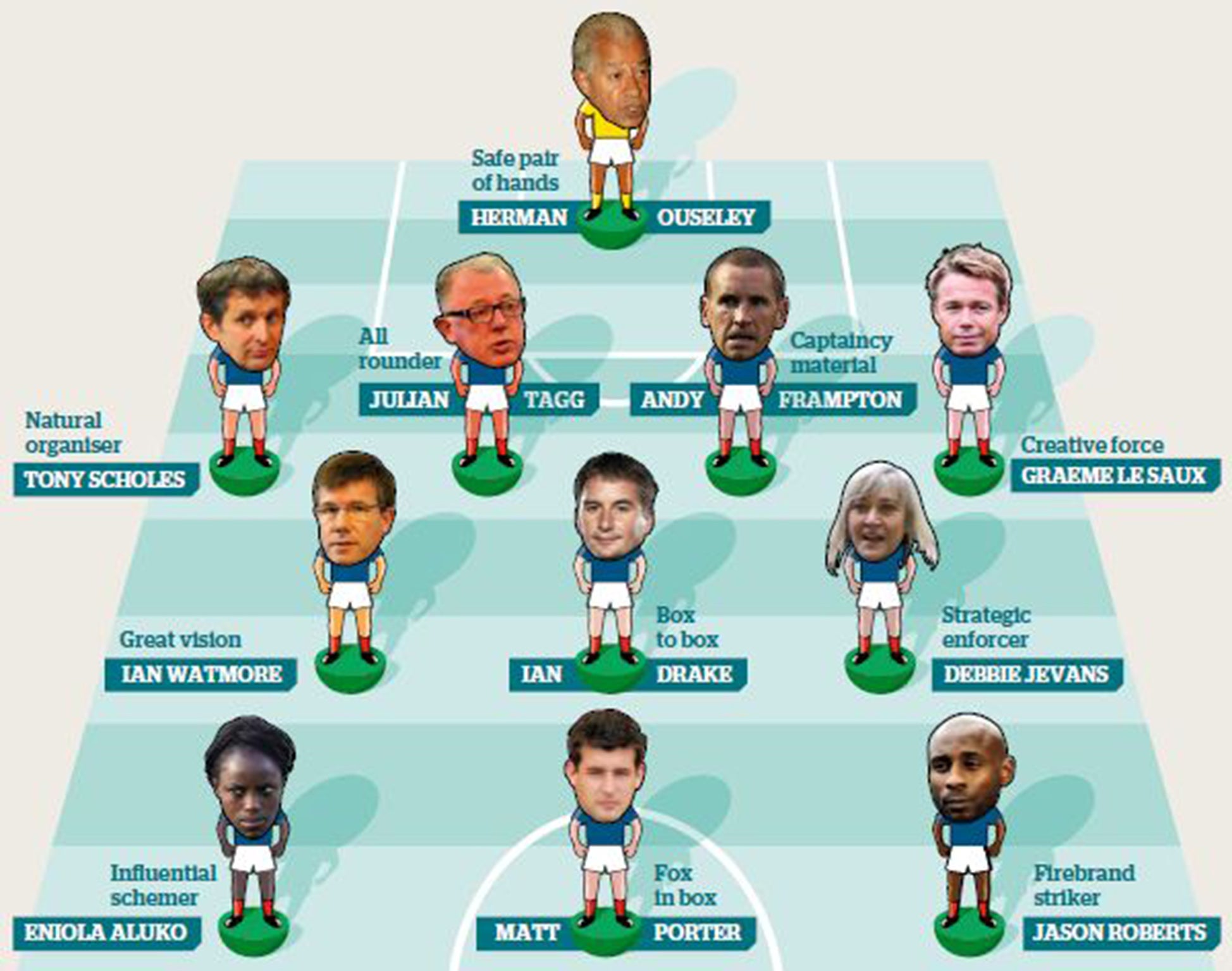Michael Calvin: Last week showed football is broken. How can we fix it?
THE LAST WORD

Domestic football is broken. It is a rogue state, splintered into personal fiefdoms and dysfunctional bureaucracies. It lacks leaders of appropriate intelligence and integrity. Out of touch, they must be driven out of office before the game can restore a semblance of credibility.
This is not about pandering to the mob, a phrase used to demean many of those who took a principled stand against the employment of Ched Evans, a convicted, unreconstructed rapist, before the judicial processes were exhausted.
Radical change of personnel is required, since football is held in justified contempt for the antediluvian attitudes it harbours and unwittingly promotes. The pretence that market economics are the only valid measure of success must be challenged.
At the end of a nightmare week of botched apologies, organisational stasis and wretched incompetence, here is a dream team who would transform four major institutions. I have selected on personal experience and peer recommendation.
Football Association
Their timorous silence throughout the Evans affair represents an embarrassing dereliction of duty and further exposes Greg Dyke, the FA chairman, as a lightweight sloganeer. No rules, he said, excusing corporate paralysis. No insight, responsibility or moral courage is closer to the point.
Lord Herman Ouseley: His transfer to the governing body from the campaigning group Kick It Out is long overdue. The quiet yet compelling voice of football’s conscience. As a black man refusing to be cowed by racist attitudes which temporarily drove him away from the game, he has the gravitas Dyke so manifestly lacks.
Ian Drake: The nuts and bolts administrator the FA need to fulfil their brief as a modern, socially responsive sporting organisation. A former teacher who, as chief executive, has been the low-key architect of British Cycling’s success at both grass-roots and elite levels. Hugely respected for his work ethic and political awareness.
Debbie Jevans: Voted the most influential woman in British sport, the former junior Wimbledon tennis champion is already an independent director at the Football League. Her strategic skills, honed in managing 20,000 staff at the London Olympics and underlined by running this year’s Rugby World Cup, would be perfectly employed in the enforced reorganisation of the FA.
Graeme Le Saux: The former England full-back is the type of former player traditionally rejected by the system. Socially conscious, media savvy and commercially astute, he is currently under-utilised, commentating on Premier League matches for US TV. Critically he has first-hand experience of the swaggering ignorance which infects modern dressing rooms.
Premier League
With another tsunami of TV money on the horizon, chief executive Richard Scudamore is going nowhere, but once the 2016 deal is done his departure would allow a more collegiate, less domineering organisation to emerge. Another big personality is required, with the vision to look beyond the League as a vehicle for lucrative elitism.
Ian Watmore: Endured seven months as FA chief executive before walking away from the “chimp’s tea party”. A principled, hugely successful businessman who became a key political figure as permanent secretary at the Cabinet Office, he had the humility to act as house husband when his wife was ordained. Currently assists England Rugby 2015 and a Newcastle law firm, specialising in ethical sports agency work.
Tony Scholes: Stoke City’s chief executive since 2004, he established them in the Premier League without compromising links to the blue-collar community they represent. Operationally astute, he drives negotiation of transfers and contracts. As a former director of the Football League and member of the FA Council, he knows his way around the system.
Eniola Aluko: Chelsea’s England striker is a role model for the women’s game who has the option of a media career. As the holder of a first-class law degree, whose life motto is “have a healthy disregard for the impossible”, she would be a hugely positive influence in the ultimate boys club.
Football League
A dismal organisation who tolerate wayward board members. It suffers from a chronic lack of leadership and has not addressed the perception of conflicting interests.
Matt Porter: A protégé of Barry Hearn, he became football’s youngest chief executive in 2006 when, aged 26, he took charge at Leyton Orient. He held that position until last October, and now runs the Professional Darts Corporation. He has the requisite drive, imagination and boldness to make a broader impact.
Julian Tagg: The ideal chairman, a former Exeter City ballboy who played for the reserves and coached in their academy before qualifying as a PE lecturer and overseeing the Football in the Community Programme. He graduated into the boardroom with the Supporters’ Trust, which has been running the club since 2003.
Professional Footballers’ Association
Gordon Taylor’s response to his unforgivably crass link between Evans and Hillsborough was straight from the Sepp Blatter playbook. He greeted calls for his resignation with the throwaway line “it’s down to the PFA members, not down to me”. They should do their duty and rid football of an unworthy survivor from another era.
Jason Roberts: Those closest to Taylor are compromised but Roberts, who stepped down from the PFA’s management committee in November, was notably independent-minded and a forceful campaigner for minority representation. As Taylor’s successor, he could drive significant change.
Andy Frampton: The most natural leader I have seen operate in a dressing room. The AFC Wimbledon defender represents an unfairly overlooked breed, the lower-division journeyman. At 35, he is ready to enter the second phase of his career. A sensitive character but sufficiently fierce to demand the highest personal and professional standards.
Join our commenting forum
Join thought-provoking conversations, follow other Independent readers and see their replies
Comments
Bookmark popover
Removed from bookmarks